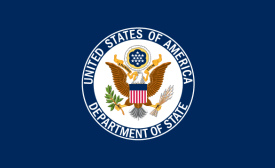public diplomacy

These are some points of foreign policy reform that Indonesia under Jokowi’s leadership can implement. First, reforms in human resources development are paramount to shape quality foreign policy and diplomacy. Our pressing need is the formulation of a Foreign Service Law, which will serve as a procedural mechanism for diplomatic positions. Ambassadorship, for instance, is the only state-appointed position where its designation has not yet been regulated under a law, despite the constitutional mandate.
His Highness the Prime Minister Sheikh Jaber Al-Mubarak Al-Hamad Al-Sabah underscored the importance of public diplomacy in strengthening ties between friendly nations. His Highness the Prime Minister's remark was made Sunday during his reception at Seif Palace of a Kuwait media delegation which has recently paid a visit to Iran. His Highness Sheikh Jaber lauded Kuwaiti media delegation's initiative to visit Iran, adding that such popular visits are in essential to build and boost people-to-people relations between countries.
“The impact Twitter has on diplomacy apart from being a broadcasting tool for election campaigns is hard to measure. However, the fact that a growing number of global leaders mutually follow each other is evidence of the importance of digital diplomacy. In particular, foreign ministers and their institutions have focused on connecting with their peers. In September 2013, the US State Department followed 22 other foreign offices as well as Iran’s President @HassanRouhani and Foreign Minister @JZarif, timidly establishing diplomatic relations between the US and Iran on Twitter.”
Since the Iranian Revolution in 1979, the Iranian and American people have been isolated from one another due to long-standing disputes between their governments. Routine interactions, like sporting events between national clubs, and other cultural exchanges have been few and far between. However, recently thousands of fans across Southern California were able to witness a rarity: the U.S. and Iranian national volleyball teams squaring off in friendly exhibition matches as part of a goodwill exchange between the two estranged nations.
If it wants to strengthen its presence in the international community and adequately inform a wider audience abroad about itself, Japan should strategically strengthen its public relations overseas and promote cultural exchanges with other nations. In its budgetary request for fiscal 2015, the Foreign Ministry has requested about 50 billion yen (about $475 million) for a new key budgetary item called "strategic proliferation of information abroad."
Diplomacy is traditionally carried out behind closed doors, in hushed rooms, with perhaps a bowl of Ferrero Rocher to hand to put ambassadors at ease. Diplomacy 2.0, though, is carried out in public and, like everything else on social media, with a fair amount of sarcasm.
The seminar, to be held on Monday, is organised by the Spanish Permanent Mission to the United Nations together with Casa África, Spain’s main public diplomacy institution dedicated to the African continent, and Real Instituto Elcano, one of the most prestigious think-tanks. It will be attended ambassadors accredited to the UN and business executives from the United States and Spain.







